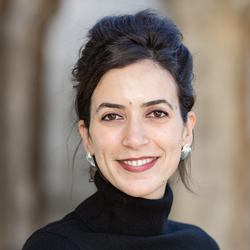
Please join the Global Theory Workshop as they host Professor Loubna El Amine, Assistant Professor of Political Science at Northwestern University.
In political theory, the state is justified by appeal to ideals like collective self-determination, yet collective self-determination is itself derivative of the distinctive form of the modern state. I call this the statist blindspot. Since this blindspot is the result of taking for granted the institutional features of the Westphalian state, one way out of it is to ask whether other institutional arrangements are possible, and what they allow us to see that the blindspot does not. I answer this question with the help of histories of Eastern empires (the Mughal, Ottoman, and Qing empires). I discuss two features of empires that distinguish them from states: their plural composition, and the heterogenous relations between the entities that constitute them and the imperial center. These institutional features of empires allow for normative ideals, like notions of inclusion and peace, that appear unrealistic from the standpoint of Westphalian states. In the conclusion, I ask how this foray into the past helps us think normatively about a different future, opening up space for thinking beyond the state and the statist blindspot.
Loubna El Amine is an assistant professor of Political Science at Northwestern University. Prof. El Amine teaches political theory, with a particular focus on early Chinese political thought. Her first book, Classical Confucian Political Thought: A New Interpretation, was published in 2015 by Princeton University Press. She is currently working on a second book, tentatively titled Beyond Freedom and Slavery: Status and Membership in the Ancient Confucian Political Community. She holds a PhD in Politics from Princeton University and a BA in Political Studies from the American University of Beirut.
Audience
- Faculty/Staff
- Graduate Students
Interest
- Academic (general)